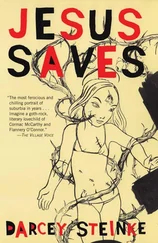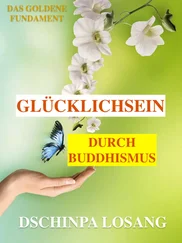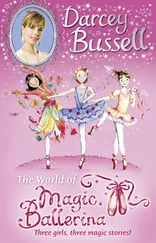I was sick of the Westerfields as well as the Kennedys. I had to hear about Caroline, how she had christened the USS John F. Kennedy with her mother, Jackie, how she once received a puppy from Khrushchev and was moving schools from Sacred Heart to Brearley. My mother went on reviewing. John-John had spent the summer on a dude ranch. The Onassis yacht had a hot tub and a steam room. Then, as my dad tapped the brakes and took a left turn onto a road lined with freshly planted pine trees, she turned to new information she’d gotten out of the Roanoke World-News . She’d learned that the Vanhoffs were Roanoke’s first family. Mr. Vanhoff was president of Shenandoah Life Insurance Company. His great-grandfather had been governor. The paper said Mr. Vanhoff had hosted the fund-raising golf tournament at the Roanoke Country Club while Mrs. Vanhoff had taken her children to the family’s vacation compound on a private lake in Michigan. There they raised rabbits and took French lessons. While my mother spoke, I bent my fingers up and back so slowly I was able to slow time down, so the syllables of what she said were so far apart the words were unrecognizable. I imagined that I was one of the astronauts on Apollo 15 landing the Falcon on the Apennine mountain range, taking the lunar rover for a spin on the silent surface of the moon. After trying to catch our eyes in the rearview mirror she realized neither Phillip nor I were going to respond.
“Here we are!” my dad said as we passed the Bent Tree sign and pulled onto a street lined on either side by two-story duplexes. Twenty-five units climbed up the side of the mountain, each a boxy red-brick building with six front windows, two doors, and tin chimneys like mushrooms springing up from the roof. My dad had made the place sound like a fancy mountain-top resort, the sort of hotel in which the young heroines in the books I read spent their summers. But the duplexes in Bent Tree looked more like army barracks.
The manager, a short man with a comb-over and a huge set of keys dangling from his belt, was waiting for us. He looked like an even smaller version of Sonny Bono, bereft without his Cher.
Dad followed the manager into the duplex and we sat in the car waiting. Insects throbbed and a bird shrieked back in the woods. My little brother crawled over the seat and got in Mom’s lap. The top half of each duplex was covered in beige aluminum siding; strips had fallen off here and there, exposing patches of gray cement. Most of the windows were covered with blinds, but a few people had strung sheets over the glass. One showed a Confederate flag. A rusty grill lay on its side and a few motorcycles were parked along the street. In the yard next to our unit was a concrete birdbath.

As we drove out of Bent Tree, my father told my mother how the woman inside our duplex wouldn’t speak to him or the manager. The manager said Bent Tree’s owner felt once you’d signed the contract, you’d committed yourself to spending at least a year in the development. Still, if an annulment was needed, if we really wanted our deposit back, he would issue us a check. My mother didn’t answer; she just ran her hand through my brother’s hair as he slept on her lap. I kept waiting for Dad to tell us about his plan B but he was quiet. I knew my father wouldn’t get his first check for another week and we were down to our last forty dollars and that the motel room cost $19.95 a night. I knew, too, that we couldn’t go back to Philadelphia; our house held a new family, a young couple with a baby. Once, when a job hadn’t worked out, we’d gone to live with Dad’s parents. Another time we’d stayed with my mother’s sister for a few weeks, but my aunt had made it clear when we left that that would be the last time.
The sun had gone down and my dad turned on the car headlights. After a while he stopped on the side of the road and spoke to a hitchhiker waiting on the soft shoulder. The man wore a small backpack, a cheesecloth shirt, and jeans with a V cut in the bottom of each leg and a triangle of paisley material sewn in to make the bell swing wide. His curly brown hair fell at his collarbone and he had a mass of freckles. Most thrilling was the string of seeds — Love Beads — around his neck. The young man got into our station wagon. I was all the way in the back lying on my stomach, reading the funny pages of the newspaper with a flashlight. I peered over the seat. My mother had smeared white cream on a rash around my mouth and I was terrified an actual hippie might see my greasy face, or worse, the red dots all over my chin.
“Hi, everybody!” he said. “My name is Guy.”
“Where you headed, Guy?” my father asked in the nothing-to-lose voice he always used when talking to hippies.
“Up to Floyd,” Guy said. Floyd was farther up in the mountains, the place local hippies hung out. I could tell my father was disappointed with Guy’s reply. I knew my father felt if Guy was free enough to be a real hippie, he would march in protests against Vietnam, or head for the Deep South to register black voters. I knew Dad had been sad to miss the fund-raiser that spring for McGovern, the one where James Taylor and Carole King sang.
“Do you live up there?”
“Oh no,” Guy said. “I’m just checking it out.”
Wow! I thought. Guy doesn’t have a home either. But unlike us, he didn’t seem to care; he was living free and easy. Sitting sideways in the backseat, looking out the window, he told us he’d hitched up to Maine, which was crazy beautiful. He was thinking about checking out Japan. A guy he knew was teaching English. My mother pressed her body against the passenger-side door, as if Guy might have head lice. Just before we pulled off the highway we let Guy out. I turned to see him receding in the glow of our headlights. He walked backward carrying a cardboard sign that read: HELLO, FELLOW HUMAN! CAN YOU SPARE A RIDE?

After Guy was gone, my father talked about life on the road, speculating on the potential for adventure. We could buy a camper and just take off, live in the moment. I knew he was saying this so he wouldn’t have to talk about Bent Tree. Finally he asked my mother what she thought we should do. She didn’t answer. She stared out the window, her lips pressed together.
Back in the motel room she went into the bathroom to change into her nightgown and take off her makeup. When she came out she flung herself on the bed. At first my dad continued to try to talk to her, saying if the woman — whose name was Miranda — wasn’t out by Sunday, that was it, that was absolutely the cut-off date. Mom didn’t say anything. She just lay on the bed staring at the dull ceiling, her eyes open and empty like a dead person’s.
After a while Dad gave up trying to talk to her. He got us changed into our pajamas. I heard the television in the room next door and in the parking lot a car door slammed. My brother fell asleep immediately. I pretended to sleep, every now and then letting out a long dramatic breath to prove I was unconscious.
My mother stood up and walked over to the phone on the dresser beside the television. She had on her mint-green nightgown and she’d taken off her mascara so the skin around her eyes was smudged.
“I’m going to call my parents and see if I can take the children there.”
“Don’t do that,” my father said from behind his newspaper.
She picked up the receiver and put her finger into the plastic dial.
“I’m sick of this,” she said. “I’m calling right now.”
“Don’t!” My father lowered the paper.
Читать дальше













